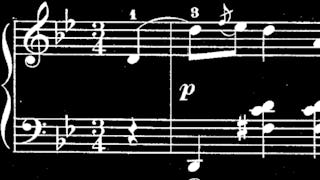Filter by
SubjectRequired
LanguageRequired
The language used throughout the course, in both instruction and assessments.
Learning ProductRequired
LevelRequired
DurationRequired
SkillsRequired
SubtitlesRequired
EducatorRequired
Explore the Music Theory Course Catalog
 Status: Preview
Status: PreviewThe University of Edinburgh
Skills you'll gain: Music Theory, Music, Classical Music, Musical Composition

Michigan State University
Skills you'll gain: Music Theory, Music, Musical Composition, Classical Music
 Status: Preview
Status: PreviewCalifornia Institute of the Arts
Skills you'll gain: Music Theory, Music, Musical Composition, Classical Music, Music History, Instrumental Music, Music Performance, World Music
 Status: Free Trial
Status: Free TrialBerklee
Skills you'll gain: Musical Composition, Music Theory, Music, Peer Review, Music Performance, Instrumental Music, Creativity
 Status: Free Trial
Status: Free TrialBerklee
Skills you'll gain: Music, Musical Composition, Post-Production, Peer Review, Media Production, Music Theory, Music Performance, Editing, Creativity, Instrumental Music, Storytelling, Timelines, File Management, Content Creation
 Status: Free Trial
Status: Free TrialBerklee
Skills you'll gain: Music Theory, Music, Music Performance, Instrumental Music, Musical Composition, Performing Arts, Coordination
What brings you to Coursera today?
 Status: Preview
Status: PreviewSkills you'll gain: Music Theory, Music, Instrumental Music, Music Performance, Creativity, Coordination
 Status: Preview
Status: PreviewYale University
Skills you'll gain: Classical Music, Music History, Music, Music Theory, Instrumental Music, Musical Composition, Art History
 Status: Free Trial
Status: Free TrialSkills you'll gain: File Management, Music Theory, Musical Composition, Music, Instrumental Music, Storytelling, Music Performance, Media Production, Automation, Editing, Creativity, Writing
 Status: Free Trial
Status: Free TrialBerklee
Skills you'll gain: Music, Musical Composition, Music Theory, Peer Review, Education Software and Technology, Instrumental Music, Teaching, World Music, Media Production, Post-Production, Classroom Management, Music Performance, Cultural Responsiveness, Oral Expression, Cultural Diversity, Storytelling, Creativity, Empowerment, Collaboration, Editing
 Status: Free Trial
Status: Free TrialSkills you'll gain: Musical Composition, Music Theory, Music, Music Performance, Creativity
 Status: Free Trial
Status: Free TrialBerklee
Skills you'll gain: Music Theory, Music, Musical Composition, Instrumental Music, Music Performance
Music Theory learners also search
In summary, here are 10 of our most popular music theory courses
- Fundamentals of Music Theory: The University of Edinburgh
- Getting Started With Music Theory: Michigan State University
- Approaching Music Theory: Melodic Forms and Simple Harmony: California Institute of the Arts
- Developing Your Musicianship: Berklee
- Music Production: Berklee
- How to Play Guitar: Berklee
- Piano Techniques for Modern Music: Berklee
- Introduction to Classical Music: Yale University
- Songwriting: Writing, Arranging, and Producing Music: Berklee
- Music Education for Teachers: Berklee










